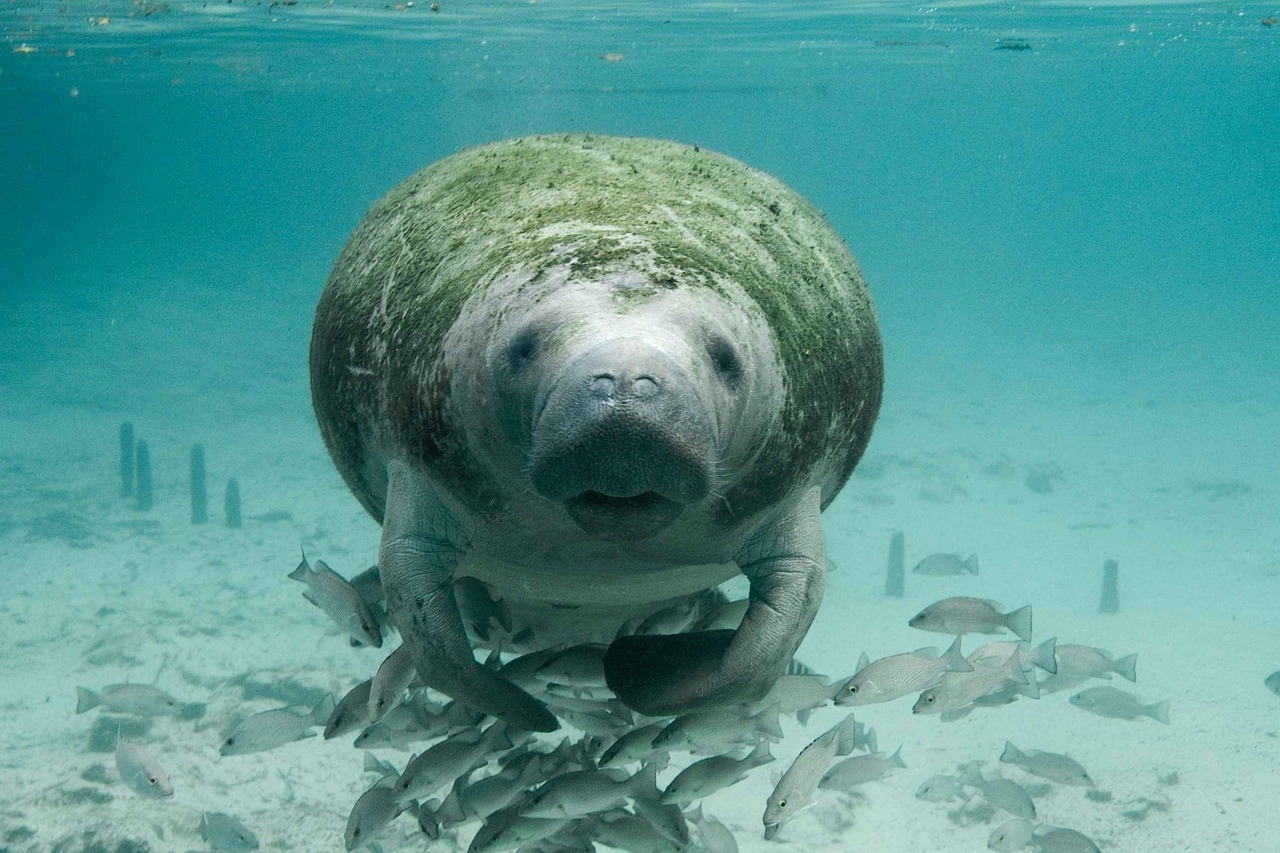Scientific classification: Manatees make up the family Trichechidae in the order Sirenia. The Amazonian manatee is classified as Trichechus inunguis.
Introduction
Manatee is familiar apellation for each of three species of a large water mammal, popularly known as a sea cow because it grazes on marine grasses and other water plants. The Amazonian manatee ranges throughout the Amazon River basin in South America. The West African manatee is found in rivers and coastal waters of tropical West Africa and the West Indian, or Caribbean, are manatees endangered manatee is found in rivers and coastal waters from the southeastern United States and the Gulf of Mexico to the Caribbean Sea and northeastern Brazil.
Characteristics
An adult manatee has a rounded body, usually colored light to dark gray or black, that tapers to a horizontally flattened, rounded tail. It is 2.5 to 4.5 m (8 to 14 ft) long, depending on the species, and weighs 200 to 600 kg (440 to 1300 lb). The small head includes a straight snout and a cleft upper lip with bristly hairs. Its nostrils, set on the upper surface of the snout, are closed tightly by valves when the animal is under water. The paddlelike forelimbs are set close to the head; no external hind limbs exist. Massive, heavy bones and long, narrow lungs, which extend through the entire body cavity, give the manatee evenly distributed buoyancy, are manatees endangered. A manatee cow gives birth about a year after mating; usually a single, pink calf is born.
Habitat
Manatees live in small family groups, although they occasionally travel in herds of 15 to 20. They feed in both freshwater and salt water, grazing for six to eight hours a day. An adult consumes an amount equal to between 5 and 10 percent of its body weight daily. Manatees have a slower metabolism than other mammals of similar size, which sharply reduces their energy requirements. This is especially important for Amazonian manatees when waters recede after floods, are manatees endangered, confining some for extended periods in shallow waters away from plants on river banks.
Conservation
Manatees have few natural enemies because of their size. However, their population has been reduced significantly by heavy hunting for hides, meat, and blubber oil, and they are frequently injured or killed in collisions with boats. Efforts to protect manatees in Africa and South America sometimes conflict with the traditional subsistence hunting of these animals. A practical consideration that supports conservation efforts is the fact that manatees help clear plant-clogged river channels used for irrigation and transportation, are manatees endangered. The World Conservation Union (also known as IUCN) lists each species of manatee as vulnerable (a term that indicates the animal is facing a high risk of extinction in the wild in ten or more years).

